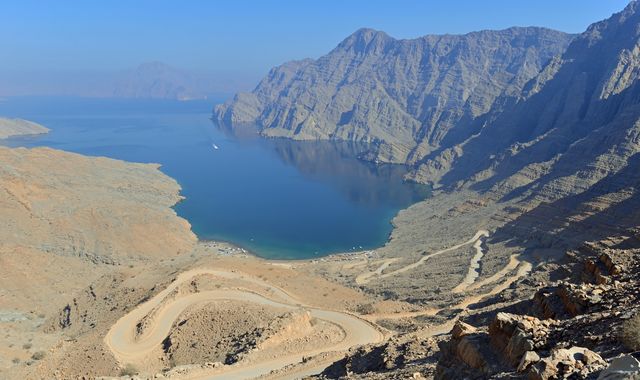The Adalynn and Front Eagle tankers collided and caught on fire on Tuesday near the Strait of Hormuz, a narrow channel which connects the Persian Gulf to the Gulf of Oman.
Israel-Iran latest: Tehran warns US against intervention
In a statement issued today, the United Arab Emirates’ energy ministry did not draw any link between the crash and an upsurge in electronic interference amid the Israel-Iran conflict.
Interference has disrupted navigation systems near the strait since the two countries began firing missiles at each other last week.
The multinational US-led Combined Maritime Force’s Joint Maritime Information Centre said in an advisory this week that it had received reports of interference stemming from near Iran’s Port of Bandar Abbas and other areas in the Gulf region.
Tehran has not commented on the collision or reports of interference.
The UAE coastguard said it evacuated 24 people from the Adalynn, while personnel on Front Eagle were reported safe with no pollution visible after a fire on its deck.
Read more from Sky News:
Why Israel-Iran conflict poses cost of living threat
Who has been targeted in Israel’s strikes?
The Strait of Hormuz – which handles around a fifth of the world’s seaborne oil – links the Gulf to the northwest with the Gulf of Oman, the Arabian Sea beyond.
The Adalynn, owned by a company based in India, had no cargo and was sailing towards the Suez Canal in Egypt, according to monitoring service TankerTrackers.com.
The Front Eagle was on its way to Zhoushan in China – and loaded with two million barrels of Iraqi crude oil, the tracker said.
TankerTrackers.com said on X that the Front Eagle was moving southbound at a speed of 13.1 knots when it “executed a starboard [right] turn, resulting in a collision” with the Adalynn.
The exact cause of the collision, which resulted in no injuries or spills, is still unclear.






























